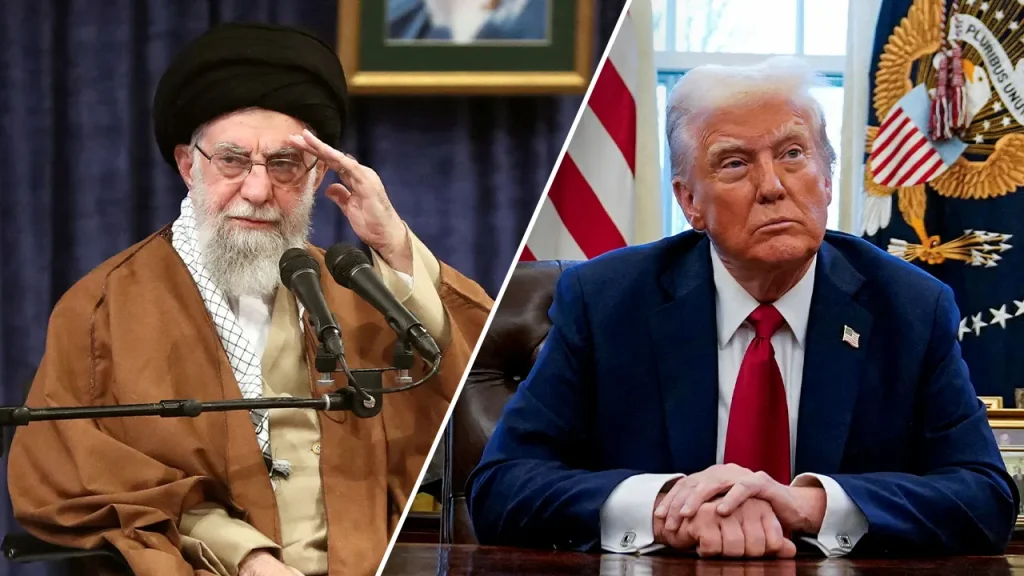The Trump administration has imposed new sanctions against an Iranian-linked Swedish gang, the Foxtrot Network, following its alleged coordination of an attack on the Israeli Embassy in Stockholm in January 2024. The sanctions, announced by the U.S. Treasury Department, are aimed at freezing the assets of the organization’s members and its fugitive leader, Rawa Majid. These measures come amid ongoing concerns about Iranian influence and the use of transnational criminal organizations to further destabilize communities in Europe.
| Article Subheadings |
|---|
| 1) Overview of the Sanctions |
| 2) The Activities of the Foxtrot Network |
| 3) Iran’s Use of Criminal Organizations |
| 4) Implications of the Sanctions |
| 5) Future Relations Between the U.S. and Iran |
Overview of the Sanctions
On March 12, 2025, the U.S. Treasury Department announced sanctions against the Foxtrot Network, a Swedish gang with ties to Iran, due to its involvement in orchestrating violent attacks against the Israeli Embassy in Stockholm. The sanctions specifically target the organization’s members and its leader, Rawa Majid, who is currently at large. As part of the sanctions, the assets of affected individuals and entities linked to the Foxtrot Network will be frozen, reinforcing the commitment of U.S. officials to counteract Iran’s aggressive foreign policy and influence outside its borders. This announcement is part of a broader strategy by the Trump administration to reapply pressure on Iran amidst rising tensions between the two nations.
The Activities of the Foxtrot Network
The Foxtrot Network has gained notoriety in Europe, particularly in Sweden, for its alleged involvement in extensive drug trafficking and violent crimes. The organization has been linked to contract killings, shootings, and other violent acts, often utilizing minors to carry out these crimes. The Treasury Department’s designation of the group as one of the most significant drug trafficking outfits in the region underscores its prominence in illegal activities. This criminal network’s reputation for ruthlessness has raised alarms among law enforcement agencies in Sweden and beyond, prompting investigations into its operational tactics and connections.
Iran’s Use of Criminal Organizations
The relationship between the Foxtrot Network and Iranian authorities illustrates a concerning strategy by Iran to leverage criminal organizations to conduct operations abroad. The Treasury Department stated that Iran increasingly resorts to such networks to execute attacks targeting U.S. interests and specific communities, especially those linked to Jewish and Israeli entities in Europe. The attack on the Israeli Embassy serves as a prime example of this tactic. According to reports, the collaborative efforts between the Foxtrot Network and Iranian intelligence agencies suggest a well-coordinated agenda aimed at destabilizing targeted regions while maintaining plausible deniability for the Iranian regime.
Implications of the Sanctions
The U.S. sanctions against the Foxtrot Network align with President Trump’s renewed approach to exert maximum pressure on Iran. By freezing the assets of individuals involved and designating organizations like the Foxtrot Network as significant threats, the administration aims to curtail Iran’s financial capacity to use criminal enterprises for its geopolitical maneuvers. Officials have stated that these sanctions are vital in holding accountable those who support Iran’s destabilizing activities. This could also serve as a warning to other organizations considering similar collaboration with Iranian authorities, reinforcing the U.S. position against foreign influence in regional conflicts.
Future Relations Between the U.S. and Iran
While the sanctions underscore a hardline stance from the U.S., they are also part of a larger dialogue regarding Iran’s nuclear ambitions. Recently, President Trump indicated that discussions around a new nuclear deal are forthcoming and expressed hope that negotiations may lead to a viable agreement. He has communicated through a letter to Iranian Supreme Leader Ayatollah Ali Khamenei, urging Iran to engage in good faith discussions, suggesting that military action would have dire consequences should diplomacy fail. This dual approach of sanctions and diplomatic outreach reflects complexity in U.S.-Iran relations, indicating ongoing uncertainty about both parties’ willingness to compromise.
| No. | Key Points |
|---|---|
| 1 | The U.S. has imposed sanctions against the Foxtrot Network for its coordination in an attack on the Israeli Embassy in Stockholm. |
| 2 | The Foxtrot Network is linked to increased violence and drug trafficking in Europe, especially in Sweden. |
| 3 | Iran is accused of using criminal organizations to further its geopolitical aims and target U.S. interests. |
| 4 | The sanctions reflect President Trump’s broader strategy of exerting maximum pressure on Iran. |
| 5 | There remains uncertainty regarding U.S.-Iran relations and the potential for future diplomatic agreements. |
Summary
The recent sanctions against the Foxtrot Network by the Trump administration indicate a significant escalation in measures aimed at countering Iranian influence through transnational crime. With a clear focus on holding accountable those who collaborate with Iran to undermine stability, these developments further highlight the complex landscape of geopolitical relations, particularly concerning Iran’s nuclear ambitions and its use of criminal organizations. As both nations navigate these turbulent waters, the potential for future dialogue remains, albeit fraught with challenges.
Frequently Asked Questions
Question: What are the sanctions imposed on the Foxtrot Network?
The U.S. sanctions involve freezing the assets of the members of the Foxtrot Network, which is linked to an attack on the Israeli Embassy as well as extensive drug trafficking and violent crimes.
Question: How is Iran using criminal organizations like the Foxtrot Network?
Iran is reportedly utilizing such organizations to conduct attacks that target U.S. interests and Jewish communities in Europe, allowing it to pursue its objectives while avoiding direct involvement.
Question: What implications do these sanctions have for future U.S.-Iran relations?
The sanctions reflect a hardline stance against Iran while providing a context for potential negotiations over its nuclear program, indicating a complex interplay between pressure and diplomacy.



